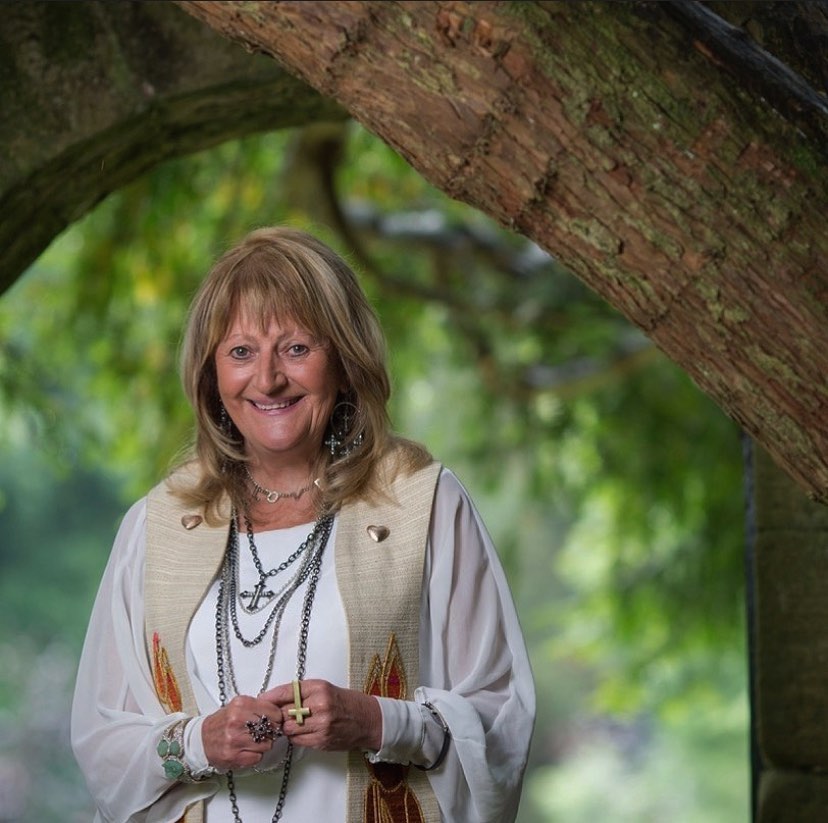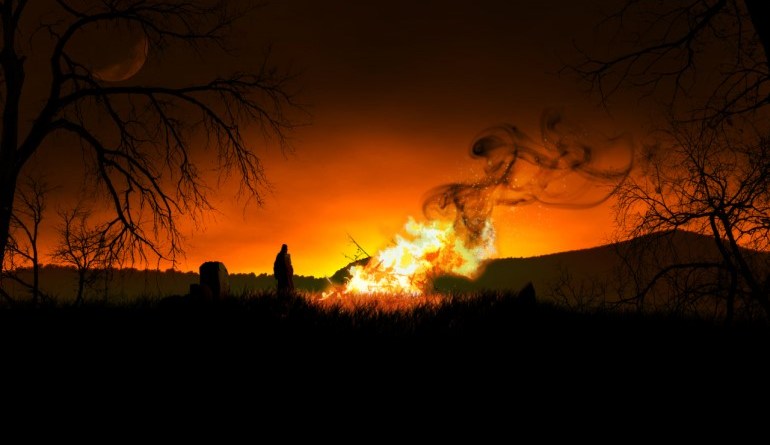Columba Books interviews Rev. Nóirín Ní Riain on the occasion of Samhain and it’s significance in the face of the more consumerist, American holiday of Halloween.

Rev. Nóirín Ní Riain
Q1- In your ministry, does Samhain feature and if so how?
All religions – all 4,200 of them – have rituals around death and dying. Sam Fuin – Samhain (Old Irish) means end of summer and is the Celtic New Year. A time for New Year resolutions. End of one year of brightness and beginning of dark year. This concept of ‘New Year, New beginnings’ is similar to Diwali, the Hindu festival of lights that marks the beginning of the Hindu new year.
Q2 – Have we lost/forgotten something special in the commercialisation of Halloween?
Yes and no.
Yes, in that we have severed our connection with the spiritual conversation; no, because through the ritual of trick-or-treat, we are reaching out to one another, albeit through our children, to care for one another. However, the gruesome ghosts, cobwebs, blood smeared plastic inflatable figures outside homes are over the top. Unfortunately, they link the magical season of Samhain with the scary and death becomes something grotesque and fearsome rather than to be welcomed which we do in the Celtic tradition.
Death is merely the extinguishing of our birth candle of existence ignited when we first entered into this world.
Q3 – How important is it to connect with souls and saints at this time of year?
It is vital to connect with and honour the other-world at all times but Samhain focuses our generous awakening to that bond of relationship. Our own souls too. Again remembering our ancestors who have passed over and taken the ultimate step to Resurrection. A time to pray for them and to them, a time to forgive and ask for forgiveness. A time of gracious gratitude for life, living, the cosmos and the Divine all the more powerful and present as we emerge from the shadow of pandemic.
Q4 – Were ancient peoples/celts more connected than we are with the season, the failing of light, the encroaching darkness?
Of course. We live in the artificial realm of light. Just as we cannot bear the reality of silence, we shun darkness. So many of us talk about the dark night of the soul, forgetting that this was the period of great spiritual insight and wisdom. So difficult to see the stars now with urban lighting and garish home lighting. ‘Look at my house’ versus ‘behold the skies’. Light is to darkness what sound is to silence. As Scripture asserts: A light shines in the darkness and the darkness cannot overcome it. John 1:5
This season is all about a NEW KIND OF LISTENING: in the darkness, we cannot see. However in darkness, we hear keenly and out aural sense is heightened when the eye sleeps. St. Paul advises us to put on the armour of Christ to dispel the darkness so we reach a new level of awareness when we bridge that gap between cosmic and spiritual light and darkness.
Q5 – What rituals do you think are important and should be revived at this time of year?
A most important question in this post-Covid period of civilisation.
Also retrieving our ancestral appreciation of ritual where one’s entire life was offered as a gift to God.
- New rituals of connection with each other. Zoom rooms have ousted churches, temples.
- Rituals of connection and conversation with nature, our first parent. Dia na nDúl.
- Rituals that honour the cosmic directions.

